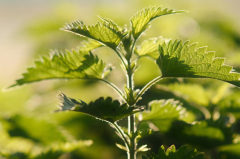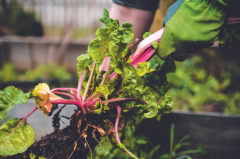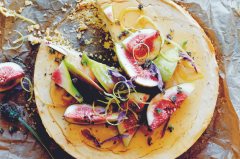Stinging nettle is a nutrient-rich herb that supports skin, hair and overall wellbeing through detoxifying and anti-inflammatory benefits.
Urtica dioica, or more commonly known as stinging nettle, is one of nature’s most mineral-dense plants and a true natural beauty promoter. While today it’s often dismissed as an irritating weed growing wild in gardens and along pathways, nettle has a long and respected history across many traditional cultures. Its roots, stems and leaves have been used for centuries in both medicinal and culinary practices — internally as a blood builder and tissue healer and topically to support skin healing from bites, burns and sun damage. It has been traditionally used in the treatment of arthritis, seasonal allergies and urinary tract disorders, as well as to strengthen the hair, clarify the skin and gently support the body’s detoxification processes.
Nettle is especially rich in key nutrients for skin, hair and systemic wellbeing. It contains significant amounts of vitamins B6, B2, A and K, along with minerals such as magnesium, silica, iron, manganese and calcium. It also delivers a wide range of phytochemicals including tannins, volatile oils, fatty acids, polysaccharides, sterols, terpenes and polyphenols like phenolic acids and fl avonoids, all of which contribute to its broad spectrum of therapeutic effects. These nutrients are often depleted during times of high stress, postpartum recovery or increased physiological demand. This is where nettle shines as a deeply restorative tonic.
Modern scientific research is now catching up with traditional knowledge, confirming nettle’s therapeutic potential. Studies show nettle to possess anti-inflammatory, antioxidant, antibacterial and analgesic properties. It has also demonstrated anti-proliferative, anti-hypertensive and anti-diabetic effects. The plant’s antioxidant activity makes it particularly interesting in the realm of natural skincare. Oxidative stress caused by free radicals initiates a cascade of unfavorables changes in the skin, including degradation of the extracellular matrix (which is like the skin’s natural scaffolding that holds everything together, keeping skin firm, plump and smooth), disruption of collagen fibres and increased production of pro-inflammatory cytokines. These processes accelerate skin ageing and contribute to chronic inflammation. The antioxidants in nettle may help neutralise these free radicals, making it a valuable ingredient for beauty fo





